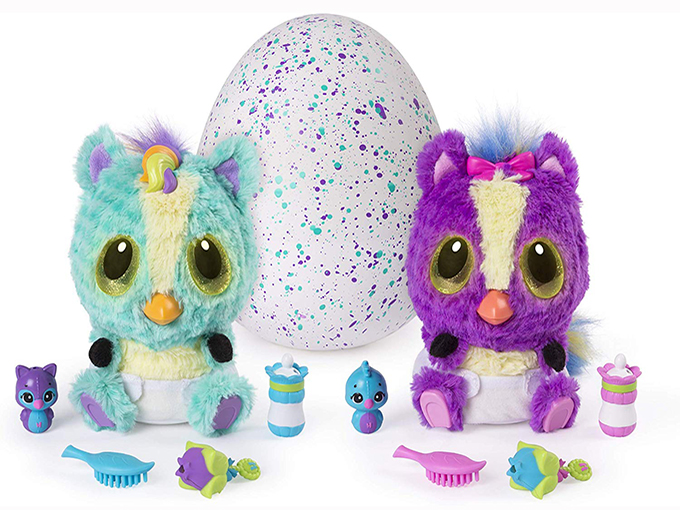Spin Master can’t crack the code for Hatchimals

Once the toy and entertainment company's golden egg, the brand contributed to a 3% decline in revenue for fiscal 2019.
Spin Master saw revenue drop 3% to US$1.58 billion in fiscal 2019, with sales for its remote control and interactive characters segment falling 40% to US$299.3 million due to weakness in Hatchimals. The Canadian toy and entertainment company’s net income for the year dropped 58% to US$64.3 million, and gross product sales declined 1% to US$1.69 billion.
The Hatchimals brand also contributed to declines in Q3, Q2 and Q1 2019.
In a statement, Spin Master chair and co-CEO Ronnen Harary said the company’s overall performance in fiscal 2019 was disappointing. “Despite the solid performance of several of our brands and franchises, we were unable to fully offset the year-over-year decline in Hatchimals sales.”
The boys action and construction segment proved to be a bright spot, however, reporting US$331.4 million in sales (an increase of 149%). This growth was driven by strong sales for Bakugan, Monster Jam and DreamWorks Dragons as well as initial shipments for DC licensed products.
Several segments showed very little change, including the preschool and girls segment (down less than 1% to US$516.2 million) and the activities, games and puzzles and plush segment (up less than 1% to US$457.7 million).
Spin Master’s outdoor segment declined 10% to US$86.6 million. The company’s other revenue segment declined 3% to US$117.9 million due to lower royalty income from products marketed by third parties using Spin Master’s owned intellectual property.
Gross product sales increased in Europe (up 14%) but declined in North America (down 5%) and the rest of the world (down 5%) for the full year.
Revenue for Q4 2019, meanwhile, increased 14% to US$473.5 million. Gross product sales for the fourth quarter grew 18% to US$550.7 million, driven by strength in the boys action and construction segment (up 98% to US$114.8 million).
Looking forward, Spin Master anticipates declines in fiscal 2020 gross product sales due to supply chain disruptions resulting from the COVID-19 (coronavirus) outbreak. Second quarter shipments, in particular, are expected to be affected by the outbreak. Approximately 60% of the toymaker’s goods are produced in China.
“Regarding COVID-19, we are monitoring the situation very closely and are assessing the impact to our supply chain as information becomes available,” Harary said in a statement. The company has initiated a “broad range of actions” to mitigate potential disruptions, and previously increased its domestic inventory levels in anticipation of US tariffs on China.
This story originally appeared in Kidscreen

 The definitive CDN broadcast and production resource.
The definitive CDN broadcast and production resource.










